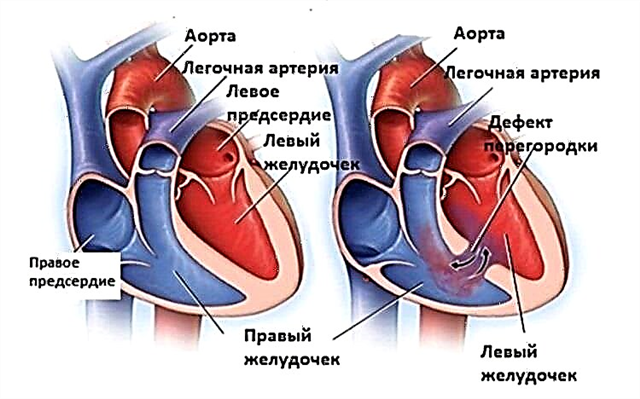 Every parent is faced with a runny nose in children. A runny nose (rhinitis) is the most common symptom of a viral infection. The disease begins with the appearance of low-grade fever, congestion, shortness of breath, frequent sneezing and snot. At the first appearance of these symptoms, it is necessary to contact a pediatrician to undergo a course of treatment. Otherwise, acute rhinitis can become chronic.
Every parent is faced with a runny nose in children. A runny nose (rhinitis) is the most common symptom of a viral infection. The disease begins with the appearance of low-grade fever, congestion, shortness of breath, frequent sneezing and snot. At the first appearance of these symptoms, it is necessary to contact a pediatrician to undergo a course of treatment. Otherwise, acute rhinitis can become chronic.
In addition to ARVI and other infections, rhinitis can be caused by an allergic reaction to any irritant. The sooner the correct diagnosis is made, the faster and easier the treatment will be. Some parents try to cure children's rhinitis on their own with folk or pharmacy remedies, but this often worsens the situation.
- Indications for the use of an antibiotic in the nose for children are:
- Prolonged runny nose that lasts 5 days or more;
- Rhinitis that does not respond to drugs that have worked before;
- Thick mucous discharge from the nose, yellowish or greenish in color;
- Snot with an admixture of pus;
- The presence of a bacterial pathogen in the secretions identified during sowing;
- Antibiotic solutions are prescribed for children with adenoids;
- Complication of ARVI with sinusitis, acute otitis media, sinusitis, ethmoiditis.
Can an antibiotic be used for a cold in children?
Many mothers are afraid to drip antibacterial solution to their children. This is due to the fact that antibiotic-containing agents adversely affect the normal microflora of the body. This statement is true when such drugs are prescribed in the form of tablets or injections and are used for a long time (more than ten days) in large doses.
Parents need not worry about nasal antibacterial drugs.
There is no microflora in the nasal cavity, and the use of such agents does not harm children's health. If the remnants of the drops enter the stomach, then they are dissolved by the gastric juice and do not negatively affect the microflora.
Plus, antibiotic nasal drops for babies are not as addictive as most parents think.
Local application of antibacterial sprays and drops does not reduce immunity, does not harm blood vessels and nerve endings.
Antibiotic in the nose for children: pros and cons
Flaws
In some rare cases, antibacterial nasal sprays can irritate the nasal mucosa or cause an allergic reaction. All this is individual. Therefore, if an allergy to a certain group of antibiotics was previously noted, then the drugs of this particular group are not prescribed. However, in childhood, allergic rhinitis is very rare, especially in infants and children under six years of age.
Advantages
If the antibacterial nasal solution is used at the very beginning of the disease, then in most cases the use of systemic drugs (tablets or injections) can be avoided. There are cases when antibiotic sprays get rid of adenoids without surgery.
How to choose the right baby nasal drops?
 The pharmacy sells nasal preparations in various packaging and for different purposes. Sometimes the choice of children's remedies for rhinitis becomes a real problem for parents. Please consult your doctor before purchasing this medicine.
The pharmacy sells nasal preparations in various packaging and for different purposes. Sometimes the choice of children's remedies for rhinitis becomes a real problem for parents. Please consult your doctor before purchasing this medicine.
Examination of children by an otolaryngologist is an absolutely painless procedure. The specialist prescribes medications depending on what problem needs to be solved. Before choosing a drug, a culture is taken to determine the type of bacteria.
When treating rhinitis in young children, it is better to give preference to drops, rather than sprays.
The fact is that infants have too little distance between the nasopharynx and the middle ear. And when using sprays, high pressure occurs, which allows the drug to penetrate into the inner ear. In this case, the development of an inflammatory process in the auditory tubes is possible.
Liquid nasal medicine in a vial is easy to dose. Fractional doses provide the safest and most gentle therapy. Another question is that some drugs are available only in the form of antibiotic nasal sprays for children. But you can choose a bottle with an aerosol that can be disassembled. Then it is convenient to use this tool with a pipette.
In any case, the main thing in the treatment of a common cold is the exact calculation of the dosage. For infants, this is the smallest dose. And the use of the medicine in the form of drops eliminates the risk of overdose. It is also very important not to use drops uncontrollably and for a long time.
Parents should be aware that sometimes infants have a physiological runny nose, which is not associated with an infection, but is due to the structural features of the nasal passages.
In infants, the nasal passages are too narrow. In such cases, children sleep with their mouths open, but this does not cause any discomfort. Physiological rhinitis does not need to be treated with anything.
What funds are most often prescribed?
Currently, the most effective drugs are Bioparox, Isofra, Polydex, Protargol.
 1. Bioparox is a broad-spectrum drug (active ingredient fusafungin), which destroys pneumococci, streptococci, mycoplasma and even Candida fungi. Available as a spray only. In addition to antibacterial, it also has an anti-inflammatory effect. It is prescribed for children from 2.5 years of age. Sometimes it causes irritation of the mucous membranes.
1. Bioparox is a broad-spectrum drug (active ingredient fusafungin), which destroys pneumococci, streptococci, mycoplasma and even Candida fungi. Available as a spray only. In addition to antibacterial, it also has an anti-inflammatory effect. It is prescribed for children from 2.5 years of age. Sometimes it causes irritation of the mucous membranes.
2. Isofra is not used for quick relief of breathing, since it does not contain vasoconstrictor elements. Isofra consists of framycetin, which has a wide spectrum of action. Destroys many types of bacteria, except for pneumococcus. It is allowed to apply even to infants, but only as prescribed by a specialist and no more than three to five days.
3. Polydex is a combined preparation consisting of antibacterial components of a wide spectrum of action: neomycin and polymyxin B. It is especially effective in the fight against Pseudomonas aeruginosa. Since Podidex also consists of vasoconstrictor and anti-inflammatory elements, it quickly copes with congestion, inflammation, mucosal edema, and allergies. It does not penetrate into the bloodstream, therefore it is safe when used correctly. The effect occurs literally within a few minutes after instillation. It is prescribed to patients from 2.5 years of age. Important: Polydex is not prescribed for children with adenoids, in this case there is a risk of developing intense headaches. The bookmaker 1xBet is one of the most famous on the market. A huge selection of events from the world of sports and e-sports, dozens of open lines, the highest odds. Also, the bookmaker has extensive functionality and one of the few gives the opportunity to make bets on a special 1xbet free bet promo code, the player is given the opportunity to activate a promo code that gives up to 5000 rubles for the first deposit. The round-the-clock work of specialists will allow them to immediately &
4. Protargol is a prescription drug used exclusively as directed by a specialist. Quite an effective tool that destroys almost all types of bacteria and fungi due to the content of silver ions in its composition. The solution is prepared at the pharmacy and is valid for 14 days from the date of manufacture. It is used only for colds of bacterial origin; with viral rhinitis, it can cause the growth of viruses. Can be used for newborns.
Antibiotics in the nose for children can cause side reactions of a local nature: dry mucous membranes, slight burning and irritation, sneezing. It is worth noting that complex nasal solutions containing antibacterial components, vasoconstrictors, hormones, antiseptics, and antihistamines can be made strictly individually according to a doctor's prescription for children.
Parents cannot independently distinguish bacterial rhinitis from viral rhinitis. Therefore, when the first signs of infection appear in children, you should seek medical help.



